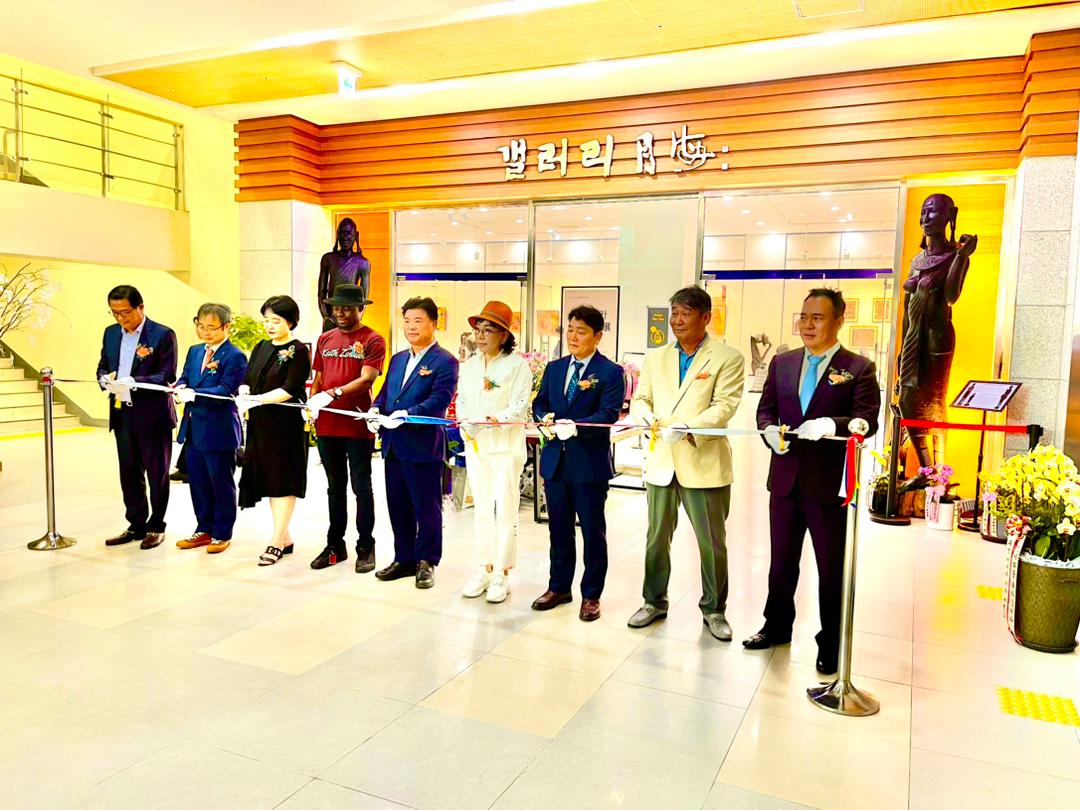Zimbabwean painter takes art to South Korea
Share

Gweru (New Ziana) – Award-winning visual artist, Keith Zenda, is in Seoul, South Korea where he is taking part in an exhibition which started on August 25 and end on September 9.
The Lower Gweru-based veteran artist is showcasing his artwork at Sang Myung University Future Centennial Hall in the South Korean capital.
Zenda perfected his self-taught art at the National Gallery in Bulawayo.
“The artwork from Shona sculptures, paintings and charcoal drawings is being exhibited in one of the biggest art galleries here in South Korea under the theme Africa Art Exhibition. I am extremely happy to be the only painter invited to represent Zimbabwe and exhibit at such an international platform. To me this is an honour,” he said.
Zenda, a member of the Hodzeko Arts and Culture Association in Gweru, is enthusiastic about his first international exhibition.
He said this has always been his wish to exhibit at such high-profile platforms where he expects to network with artists from other countries.
“This time l got an opportunity to do an exhibition in South Korea and it is my first time to go beyond Africa,” he said.
Zenda appealed to the government to adequately fund the arts sector for the benefit of upcoming artists.
He recently opened an art gallery in Mkoba 17 aimed at promoting art and culture in the community.
Zenda started his arts career from humble beginnings at his rural areas in Chirumhanzu, Midlands Province at a tender age of 10. He became a full-time artist in 2003 after finishing his Ordinary Level at Mambo High School.
He has scooped a number of national awards which include the National Arts Merit Award (NAMA), Faceit Zimbabwe, National Gallery of Zimbabwe Award and the Morgan and Company Artspiration Masked Art Competition 2D Category award, among others.
The creative industry in Zimbabwe contributes close to US$100 million annually to the country’s GDP, with thousands of people working in the cultural industry, according to a study by the Culture Fund of Zimbabwe in 2009.
New Ziana







